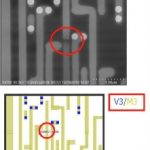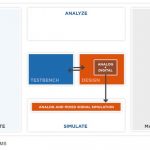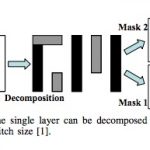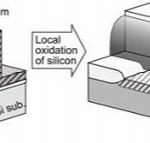You are currently viewing SemiWiki as a guest which gives you limited access to the site. To view blog comments and experience other SemiWiki features you must be a registered member. Registration is fast, simple, and absolutely free so please,
join our community today!
WP_Term Object
(
[term_id] => 159
[name] => Siemens EDA
[slug] => siemens-eda
[term_group] => 0
[term_taxonomy_id] => 159
[taxonomy] => category
[description] =>
[parent] => 157
[count] => 818
[filter] => raw
[cat_ID] => 159
[category_count] => 818
[category_description] =>
[cat_name] => Siemens EDA
[category_nicename] => siemens-eda
[category_parent] => 157
[is_post] =>
)

WP_Term Object
(
[term_id] => 159
[name] => Siemens EDA
[slug] => siemens-eda
[term_group] => 0
[term_taxonomy_id] => 159
[taxonomy] => category
[description] =>
[parent] => 157
[count] => 818
[filter] => raw
[cat_ID] => 159
[category_count] => 818
[category_description] =>
[cat_name] => Siemens EDA
[category_nicename] => siemens-eda
[category_parent] => 157
[is_post] =>
)
IC Test Sessions at SEMICON West 2012by Beth Martin on 07-02-2012 at 1:43 pmCategories: EDA, Siemens EDA
SEMICON West is coming up this July 10-12 at the Moscone Center in San Francisco. It covers a broad swath of the microelectronics supply chain, but I was particularly interested in the test sessions. Here are two that I recommend.
“The Value of Test for Semiconductor Yield Learning” on Tuesday, July 10, at 1:30p. The… Read More
I met with Jay Madiraju of Mentor Graphics on Wednesday at DAC to get an update on their AMS simulation products. We worked together at Mentor back when Mach TA was being developed as a Fast SPICE circuit simulator.… Read More
David Abercrombie from Mentor Graphics met with me on Tuesday at DAC to provide an update on DPT – Double Patterning Technology, something new required for several layers starting at the 20nm node in order to get any IC yield. DPT is also part of Multiple-Patterning.… Read More
The days following a major conference like DAC are a good time to reflect on the overall health and vibrancy of the electronic design automation (EDA) industry. I’ve been in EDA for 21 years and built two successful startups, and over the last couple of years, have witnessed some decline in both new talent and in venture investment… Read More
I got an email from Mentor Embedded this morning about a webinar on Implementing a GENIVI-compliant System. I have to admit I had no idea what GENIVI is, which surprised me. I spent several years working in the embedded space and so I usually have at least a 50,000 foot view of most things going on there. One reason for my ignorance is … Read More
Linda Fosler, Tom Daspit and Mitch from Mentor Graphics met with me last Monday at DAC to provide an update on IC layout and circuit simulation tools. My notes follow:
Overview – Pyxis for Schematic and Layout, IC Station is re-branded as Pyxis. (Pyxis schematic is still Falcon, Ample language is still used.)… Read More
What is new with Mentor? Quite a bit actually. About this time last year Corporate Raider Carl Icahn stirred things up with a hostile takeover attempt that ended with three Raiderettes on the Mentor Board, out of eight board members total. This year however, two of the three Raiderettes are out so it looks like Mentor is firmly in control.… Read More
One year ago the annual share holder meeting at Mentor Graphics had tight security, a no-camera policy, and the drama of Carl Icahn the corporate raider successfully adding three new board members. Fast forward to today where two of Icahn’s board members were not even nominated, and Mentor added two new board members. I chatted… Read More
Have you ever heard of a Super Pillar Transistor? It’s one of many emerging 3D transistor types, like Intel’s popular FinFET device.
In the race to continuously improve MOS transistors, these new 3D transistor structures pose challenges to the established IC extraction tool flows.
Foundries have to provide an Effective… Read More
Yesterday I met with Michael Buehler-Garcia, Director of Marketing at Mentor Graphics for Calibre in Wilsonville, Oregon to get an update on what’s coming up at DAC, the premier conference and trade show for our industry.
… Read More











